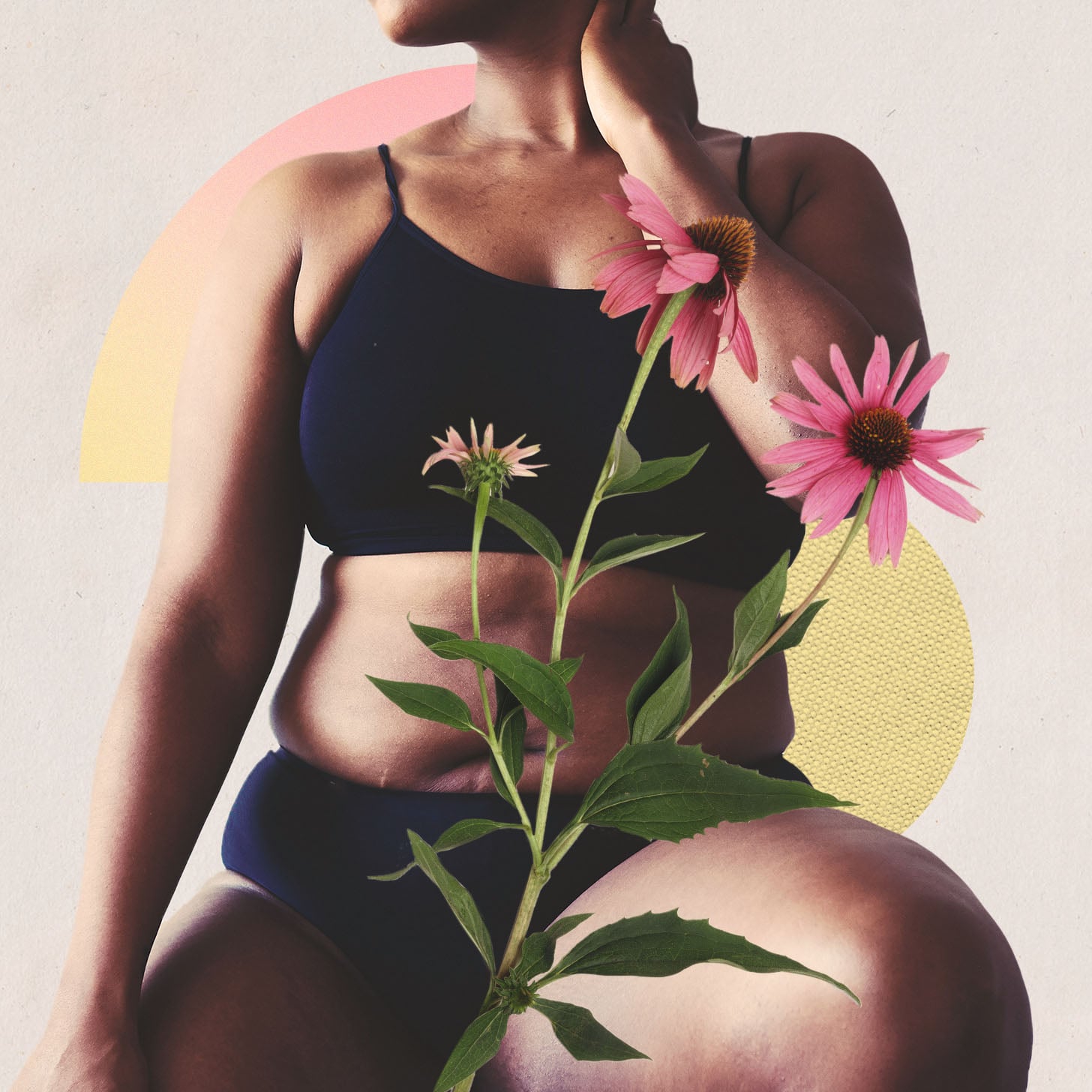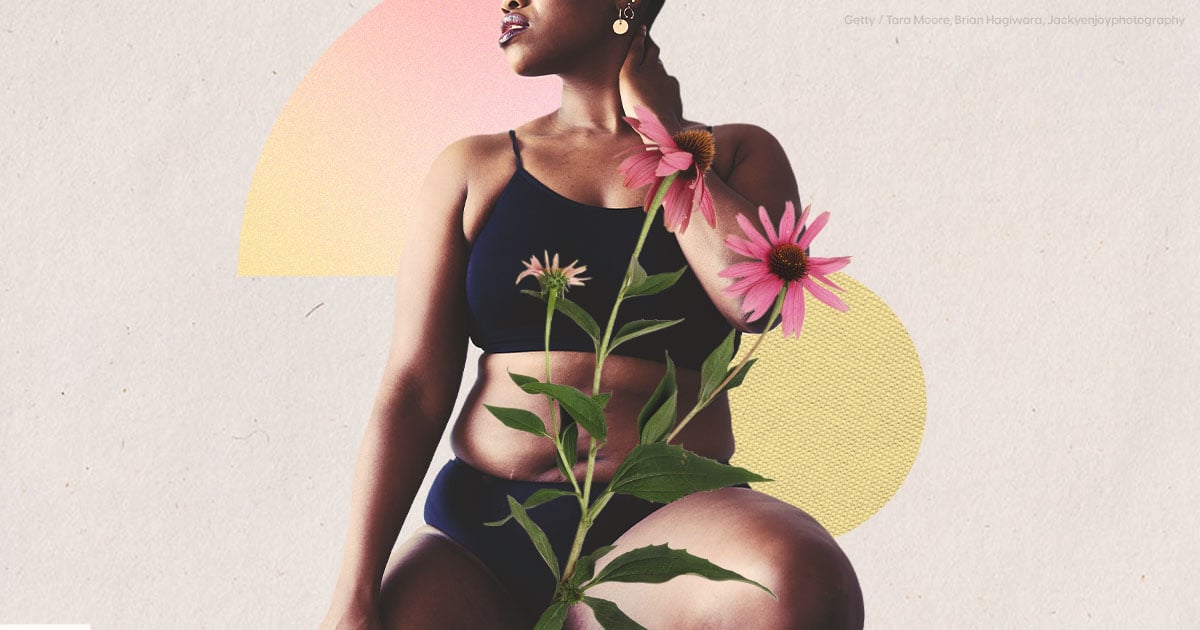
I can’t scroll through TikTok without seeing a video about either Ozempic or buccal fat removal. The videos range from before and afters to Stitches critiquing the popularity of these trends.
For those who may be unfamiliar, Ozempic is a medication typically prescribed to those who have diabetes, but it is now being touted as a quick-fix weight-loss drug. It’s been widely speculated that many celebrities such as the Kardashians and Mindy Kaling, who are donning noticeably thinner physiques these days, are using the drug.
One of the biggest issues with the popularization of Ozempic, especially via social media platforms like TikTok, is that people who actually need the drug to manage their diabetes are experiencing a shortage. Plus, the results of using the drug for weight loss are reportedly short lived. According to a recent study in the journal Pharmacology & Therapeutics, participants regained two-thirds of their prior weight loss when they stopped treatment completely, highlighting how unsustainable the treatment really is.
Still, other slimming treatments like buccal fat removal have experienced a similar rise to fame. The trending procedure removes fat in your cheeks with the goal of making your face appear less chubby, less round, and more sculpted. And last November, the New York Post published an article entitled “Bye-Bye Booty: Heroin Chic Is Back,” informing us all that thin is in. All of this to say, despite the popularity of the body-positivity movement, it appears society is working overtime to convince us that bodies are trends — and that we should continue shape shifting with the times in order to match whatever physique is “in demand.” The messaging is strong, and unfortunately, effective.
The wellness industry in theory is supposed to make us “well.” However, for many of us, the culture has left us feeling the exact opposite. Many of us are now struggling with more body-image issues than we started with, complicated relationships with food and exercise, and less of an ability to trust our intuition when it comes to listening to our bodies. It’s time to start holding this industry accountable for the harm it has caused.
The journey to body liberation is hard at times, but it’s one of the most worthwhile endeavors we could ever pursue for ourselves.
I know this because I’ve been through it myself. I went on my first diet at the age of 17 and spent nearly the next decade of my life yo-yo dieting, overexercising, and restricting in an attempt to control how my body looked and to keep it small. After years of misery, deprivation, and body obsession, I realized that losing weight and getting in the best shape of my life wasn’t going to make me happier or make me feel any more worthy of acceptance.
I was able to change my outlook, my life, and my mental health, all through body liberation — a concept that goes beyond body positivity in an important and impactful way. Body positivity, which can be a good introduction to the concept of thinking about our bodies differently, focuses on empowering individuals to love and appreciate their bodies regardless of their size, shape, or weight, preaching that all bodies are worthy of respect and love. Body liberation is about finding actual freedom in our bodies. It’s about understanding that the goal is not to look at our bodies and love everything we see. It’s to understand that we are so much more than our bodies. In fact, our bodies are the least interesting thing about us. In fact, they are simply the vessels that allow us to have this human experience. We are inherently worthy simply because we exist. And when we stop obsessing about our bodies, we can have that full and fulfilling human experience at last. The choice is ours. But what does choosing liberation look like? Although I can’t give you all the answers within the breadth of this article, here are 4 tips to help you on your journey toward body liberation:
1. Recognize That Bodies Change
Bodies change, and it’s normal. They were created and designed to do that. They change shape and size. They age. They deteriorate. They wrinkle and dimple. They lose hair and grow hair in new places. They lose weight. They gain weight. They deal with chronic illness and disease. Some of them birth children. Some of them run marathons. Some of them use wheelchairs. There are an endless amount of ways to have a body, and there is no right or wrong way to have one. The truth is, this body is fleeting. That is the beauty of our shared humanity. We can either spend all of our time, money, and energy chasing the “in” body, a never ending, moving target — or we can choose to accept the fact that our bodies are all designed to look different. The sooner we can learn to love and appreciate our bodies in all of its iterations, the easier it is to move towards liberation.
2. Practice Gratitude
The way we look is the least interesting thing about us. Practicing gratitude for ourselves, independent of our physicality, helps us realize that we are so much more than our exterior. Our bodies are merely the shell we reside in and allow us to have this human experience. Show appreciation to yourself daily for things that have nothing to do with what you look like. If you ever find yourself struggling with this part, ask your best friend or someone who loves you deeply and unapologetically for some positive affirmations. It can be so much easier for others to go down the laundry list of amazing attributes about ourselves than it is for us to dish out a self-compliment.
3. Do A Social Cleanse
I genuinely love social media and I think it allows us to connect with people all over the world that we might otherwise have never met. As a collective, though, we spend a lot of time on social media. I know I spend more time there than I care to admit. So if I’m going to be there, I try to make it as healthy an environment for myself as possible. For me, that means intentionally curating my feed. I’m a big fan of both the unfollow button and the mute button. If I feel triggered by content, if it makes me feel less than, if it makes me question my worth, if it makes me feel drawn back into diet culture, it’s not content I want to see on my timeline. That doesn’t necessarily mean there’s anything wrong with the content. It could just mean that it doesn’t make me feel good based on my current circumstances, and therefore, I set a boundary about seeing that content on my newsfeed. If looking at someone else’s “perfect” body triggers my own body image insecurities, perhaps it’s not content I need to see. That says nothing about the person or content, and everything about my choice to prioritize my own mental health.
4. Lean Into Compassion
Compassion is the antidote to feelings of guilt, shame, and dissatisfaction about our bodies. Some days we will love what we see in the mirror and other days we won’t — that’s natural, and it’s human. The trick is to learn to approach the feelings, both good and bad, that come up with curiosity and kindness and to always remember that regardless of how we feel about our bodies day to day, we are always worthy. When we can begin to hold ourselves with compassion, kindness, and care, we can begin to not only respect, but also appreciate ourselves exactly as we are. It also works to lessen our feelings of body shame and reduces the amount to which our feelings of self-worth are contingent on physical appearance, especially when we recognize that we have all been dealt a difficult hand as it pertains to loving ourselves. We are truly doing the best we can.
The journey to body liberation is hard at times, but it’s one of the most worthwhile endeavors we could ever pursue for ourselves. As we embrace liberation, we are able to celebrate and appreciate the body we have right now — in its current shape, size, and ability level. That’s what embracing body liberation has done for me. It’s allowed me true freedom in my body in all of its iterations. What a tragedy it would be to spend the best moments, days, or a lifetime fighting with our bodies and wishing it were something else.
Chrissy King’s “The Body Liberation Project: How Understanding Racism and Diet Culture Helps Cultivate Joy and Build Collective Freedom” is on sale March 14.
Image Source: Getty / Tara Moore / Brian Hagiwara / Jackyenjoyphotography
